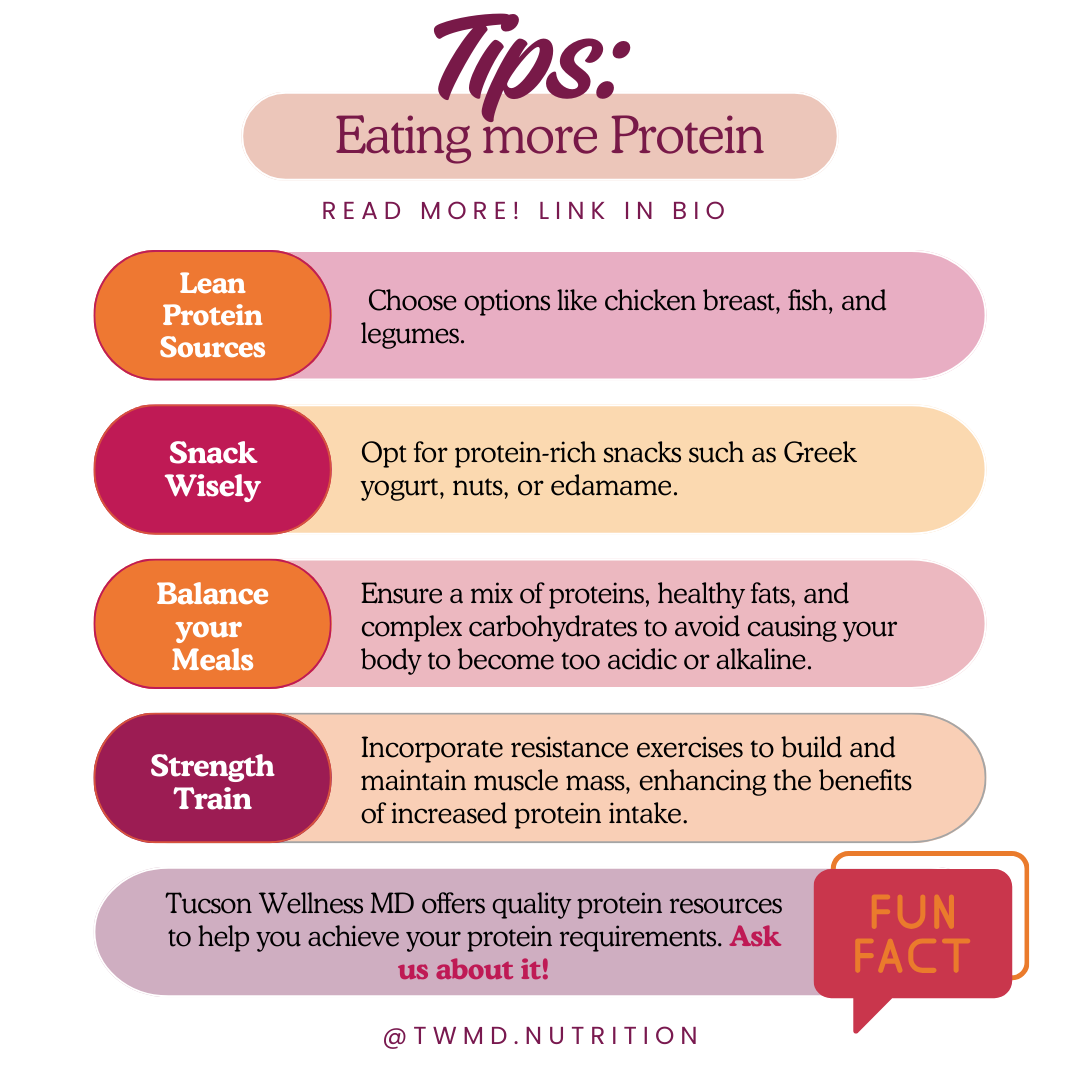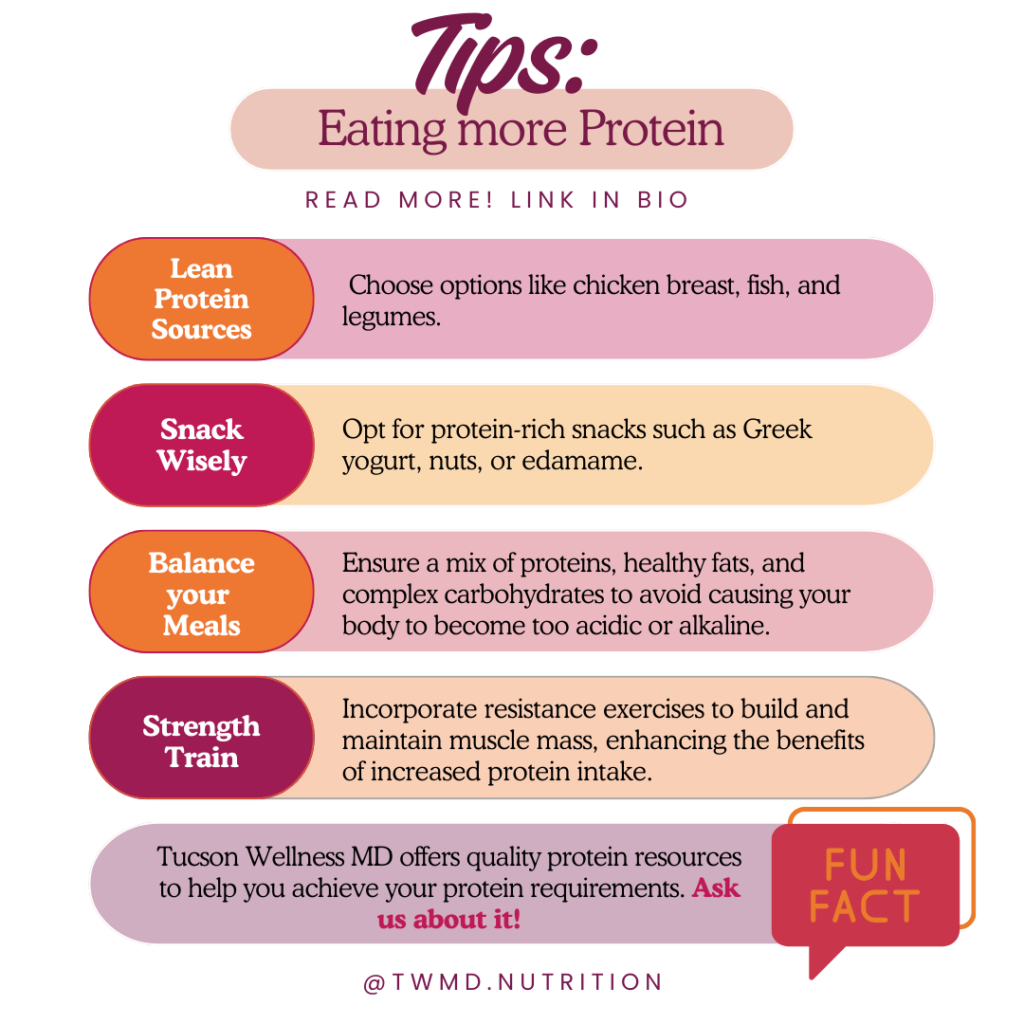
Protein-Powered Semaglutide: Practical Tips for Achieving Your Wellness Goals
By focusing on a higher intake of quality protein, you can enhance semaglutide’s effects, support muscle preservation, and maintain balanced nutrition throughout your treatment.
Semaglutide curbs your appetite, leading to reduced food intake and lower calorie consumption, which typically results in weight loss, intending to be from fat. However, without enough dietary protein and resistance training, you might also lose some muscle while on semaglutide. Unlike extended fasting, semaglutide doesn’t force your body to use fat as its primary energy source. Instead, it works by decreasing appetite and slowing digestion, so your body will use a mix of carbs, fats, and proteins for energy, depending on your diet and activity level.
Dr. Kellams recommends, “consuming complete proteins, particularly from lean meat sources, as they provide essential amino acids which aids in muscle maintenance.”

At Tucson Wellness MD, our experts advocate for a lifestyle of balanced nutrition to ensure you get all the essential nutrients your body needs. Dietary protein is a key player in weight management, it keeps you full and curbs appetite on its own, and its effects are even more pronounced when combined with semaglutide. Adequate protein intake helps preserve muscle mass during calorie restriction, preventing muscle loss. Unlike carbs, protein has a minimal impact on blood sugar, which boosts semaglutide’s effectiveness, especially in managing diabetes. Plus, with its high thermic effect, your body burns more calories digesting protein, think of those meat sweats, giving your metabolism a powerful boost!